29
Trainer Competitive Swimming
Trainer Competitive Swimming
Content
Your club and all the people who can't swim really need you. Many activities of clubs depend on volunteers. If you love swimming and have the ABC diploma yourself, you can become a coach. You provide training in one of the aquatic sports: competitive swimming, water polo, lifesaving, or fin swimming. You teach children, youth, and adults to swim technically well and to take their sport seriously. You ensure that the participants enjoy it so much that they keep swimming. "Staying swimming" is a big problem. Aquatic clubs lose many members, including children, youth, and young adults:
- When they go to secondary education,
- Transition to higher education,
- Start working,
- When friends drop out,
- Have children,
- Realize they're not getting any better,
- Are surpassed by others.
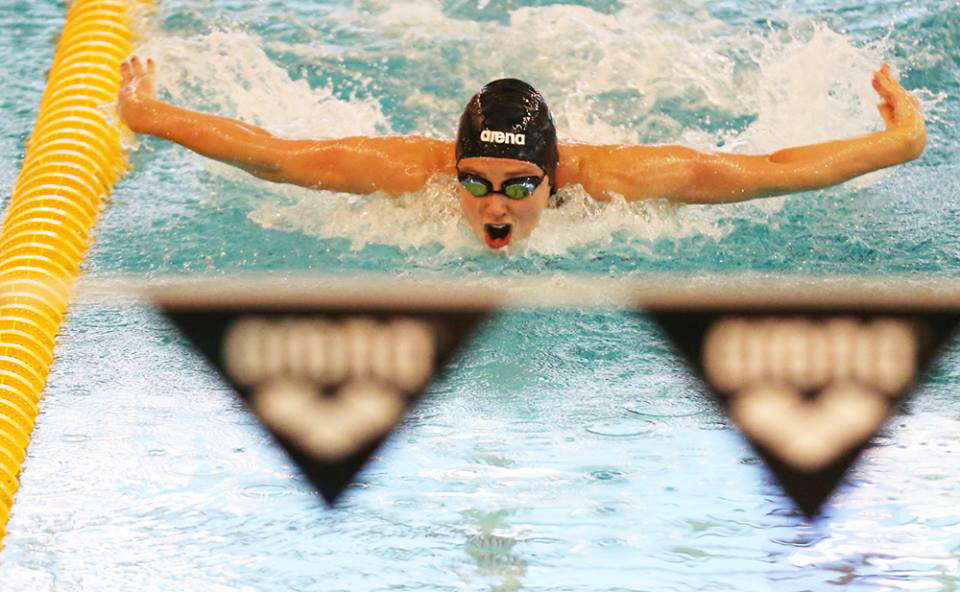
Not all members of a club are primarily focused on performance. For example, they come for the camaraderie, the social contacts with like-minded people, and the outings to competitions. To make both the more sports-oriented individuals and others enjoy themselves, many staff members are needed. Especially young people who are willing to give training or be officials. As an MDT participant, you can be trained for this and work at your club at the same time. You must be over 16 years old. ExpeditieRED will train you to become a level 2 coach. If you are a member of the KNZB, you can do this through the KNZB. If you are not yet a member, we will make you a member of the KNZB. You will receive an official KNZB coach diploma recognized by NOC*NSF at level MBO 2.
You will learn primarily:
- How to deal with groups and individuals in groups.
- How to create a safe environment.
- How to give training with pleasure.
- How to teach techniques from your sport to children and young people.
- How to implement training programs.
- How to ensure that participants have fun and satisfaction in what they do.
We do this in various ways with games, instruction, and other challenges to make it more enjoyable for children.
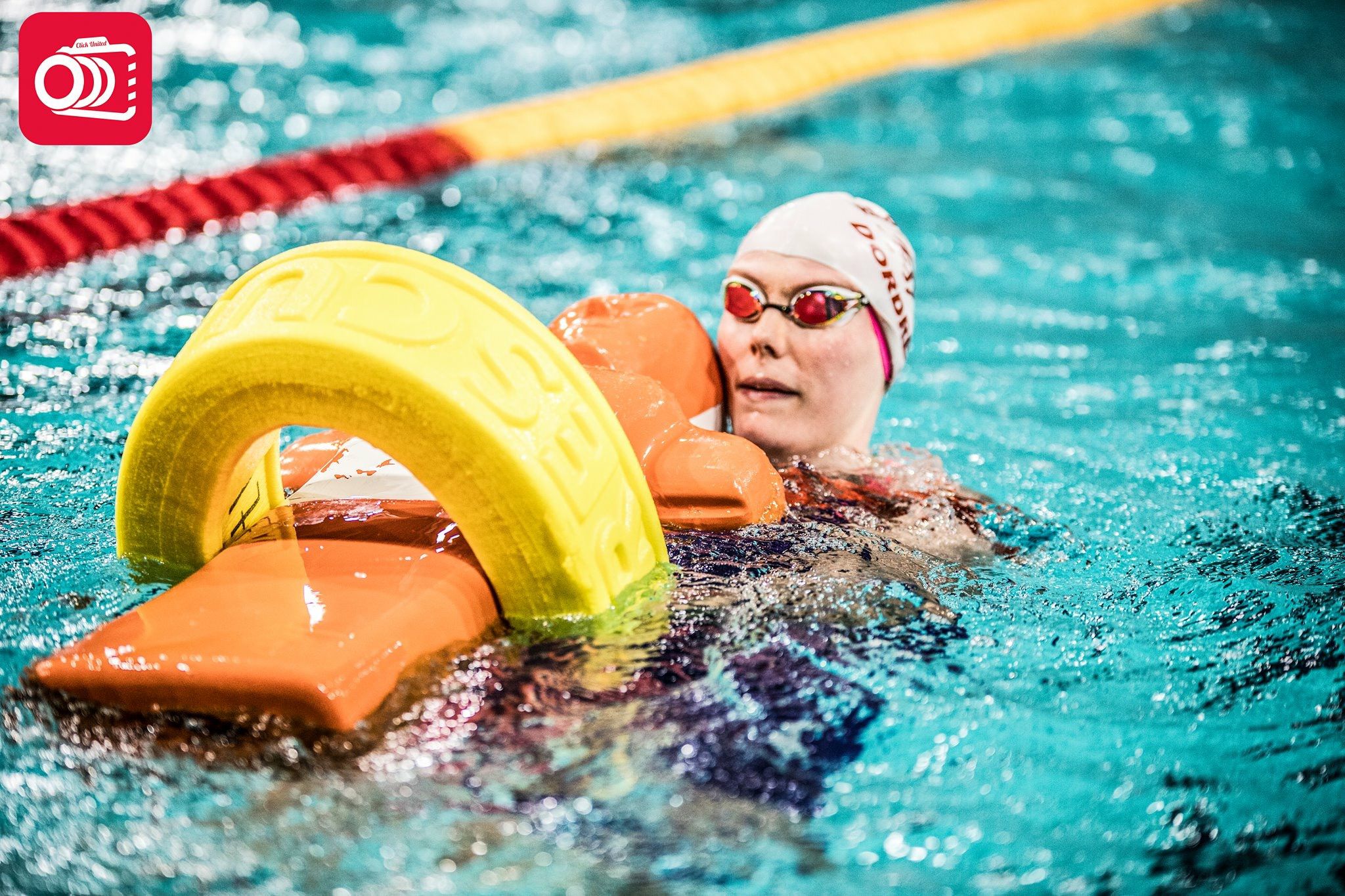
A social service time trajectory lasts a maximum of 6 months. During that period, you will provide approximately 45 hours of training in the pool. Additionally, you will receive 35 hours of training. In total, you will be actively involved for 80 hours during those 6 months.
The group to which you provide training depends on your choice. You can provide training to:
- Children in primary school age,
- Juniors,
- Seniors.
You will be guided in your choices, and this also applies throughout the entire trajectory. You will discuss what you will be doing with your coordinator from ExpeditieRED.
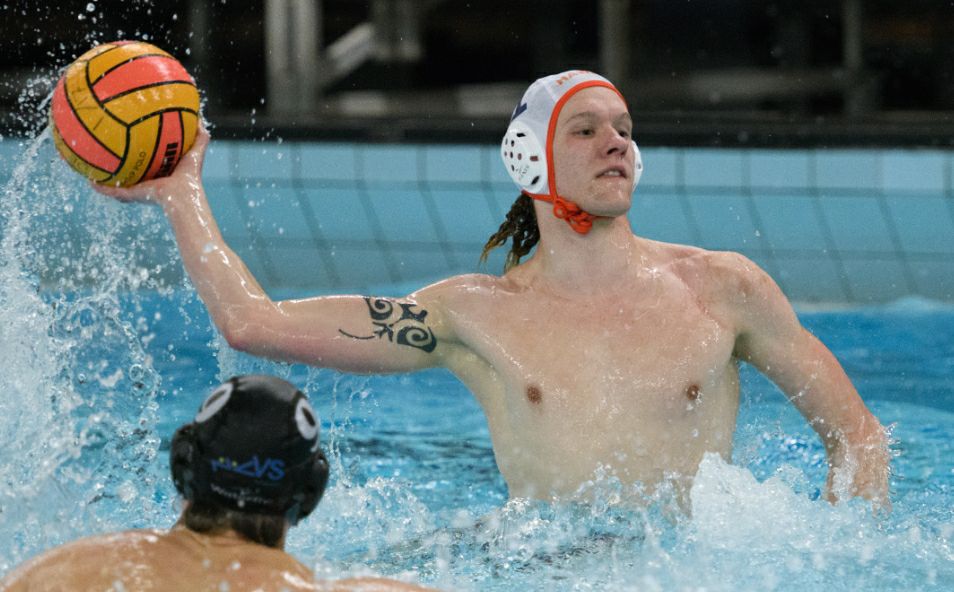
Of course, we collaborate closely with your club because it must align with their goals as well. With each club, we assess together what the club needs and wants. We also agree on who can guide you and ensure that you feel comfortable in your role.
To work effectively with clubs, ExpeditieRED is limited to Southwest Netherlands. If you are not a member of a club and have little swimming experience, you may be better suited to become an assistent (see the "assistent" playlist).
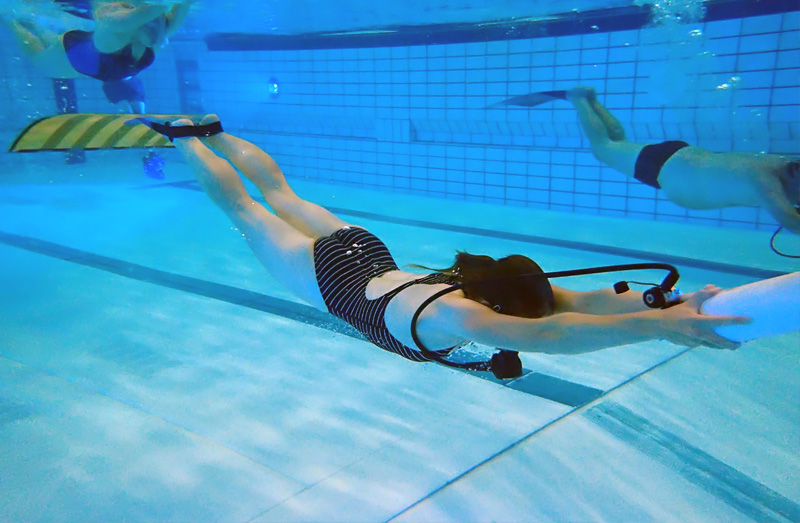
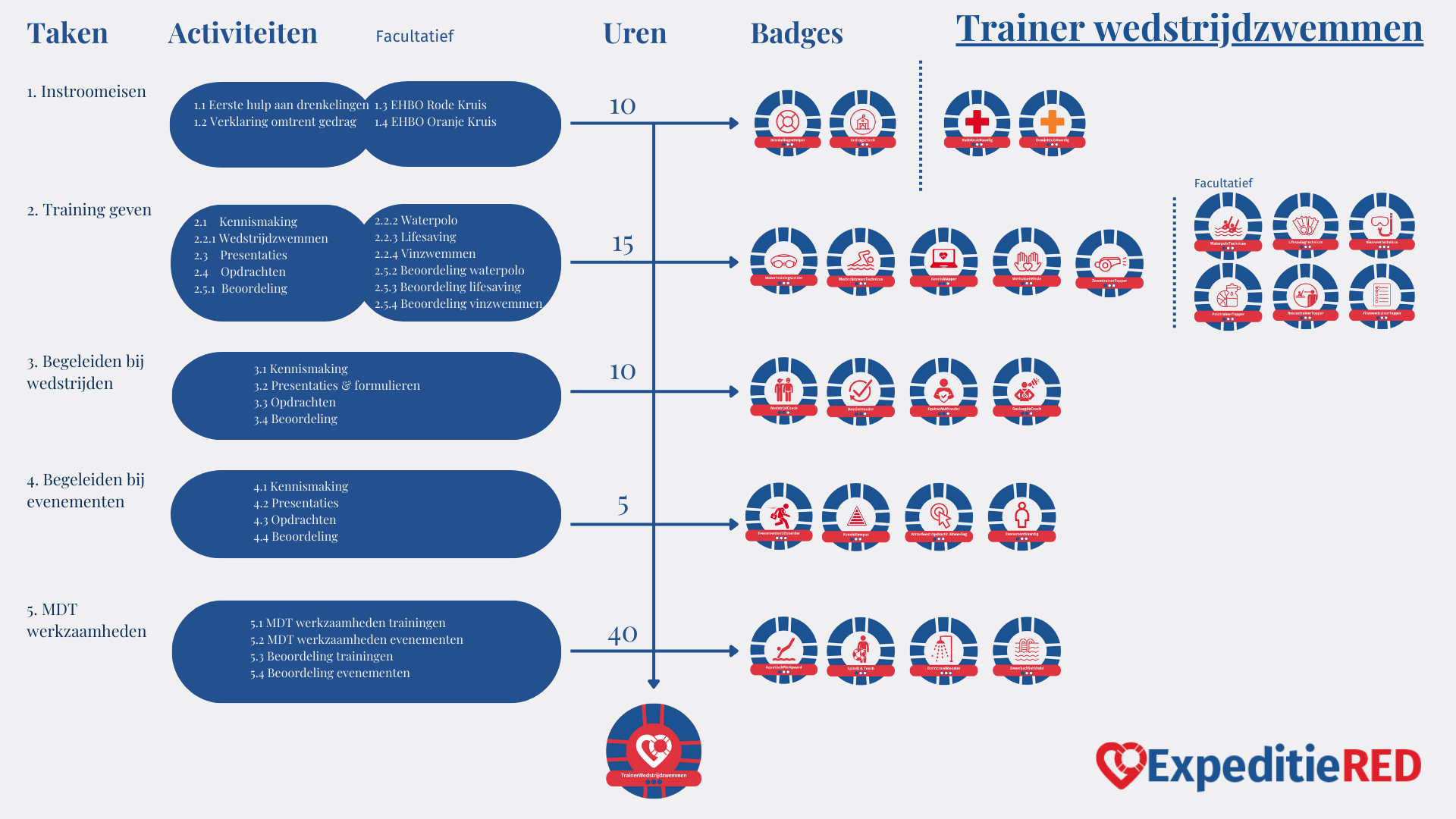
Activities to complete
Complete the following activities, earn badges and you will see your playlist progress updated
Content
You can choose another specialization alongside competitive swimming. Only the part 'guidance in giving training' will be assessed for the specialization in fin swimming. You don't need to redo everything that overlaps with the 'guidance in training competitive swimming' protocol. Typically, you only perform 'conducts lessons' and 'explains exercises'.
Get activity badge
FinSwimmingCoachTopper Get this badge
If you have earned this badge, you are capable of providing training to a group assigned to you in the specialization of your choice. You can assess and evaluate the athletes, gauging how well the group is functioning. You implement the training program and provide the appropriate instructions and guidance. Afterwards, you can evaluate how the training session went and determine areas for improvement or adjustments for the next time.
Tasks
Task no.1
Issued by organiser or scanning QR code
The task of teaching is fulfilled when the specified result is achieved in the subtasks.
Protocol:
1. Within this task, you carry out the following task components. For each component, the result is stated first:
Guides athletes during training.
The results of this subtask are:
- Guidance is tailored to the athletes.
- The guidance supports a positive learning environment.
- Social and physical safety is ensured.
Points of attention include:
- Adjusts interaction style to suit the athletes.
- Uses clear and understandable language with the athletes.
- Motivates, stimulates, and excites the athletes.
- Informs about sports-related matters such as sportswear, footwear, and equipment.
- Monitors (and oversees) safety and acts in case of an emergency (accident).
- Handles personal information confidentially in accordance with guidelines.
2. Conducts training sessions.
The results of this subtask are:
- The lesson is coordinated with the responsible coach in consultation with the athletes.
Points of attention include:
- Executes training preparation and/or follows instructions from the responsible coach.
- Ensures that materials and tools are available.
- Ensures that the training is tailored to the athletes in consultation with the responsible instructor.
- Consults with the responsible coach.
- Contributes to achieving the goal of the training.
3. Explains exercises
The results of this subtask are:
- The exercise is understood by the athletes.
- athletes' experience and learn.
Points of attention include:
- Chooses a position tailored to the exercise.
- Makes oneself understood. '
- Tailors the explanation to the athletes.
- Demonstrates exercises correctly or uses a good example.
- Adjusts training methods if necessary based on the athletes and/or circumstances.
- Provides instructions to the athletes in relation to the goal of the training method.
- Checks if the athletes understand the instructions.
4. Evaluates training sessions and reflects on own actions.
The results of this subtask are:
- The evaluation focuses on the process and result of the training.
- Self-reflection leads to insight into one's own abilities and areas for development in guiding training sessions.
Points of attention include:
- Participates in evaluation focused on the goal and process.
- Adheres to professional codes.
- Seeks feedback.
- Expresses one's own learning needs.
- Consults knowledge sources/experts.
- Reflects on own actions.
Whether the task has been done well is assessed based on the points of attention provided for each task component."
Activities: 28
Started: 9
Completed playlist: 0
Time to complete: 8 days 1 hour 30 minutes
Share:
Organisers
ExpeditieRED
Badge issuer recognized with
Awero not-for-profit organisation manages this platform and develops it together with leading educational organisations. The European Union's programme Erasmus+ granted co-funding for building the first version of this platform. Contact support@awero.org.
Platform
Change to another language:
